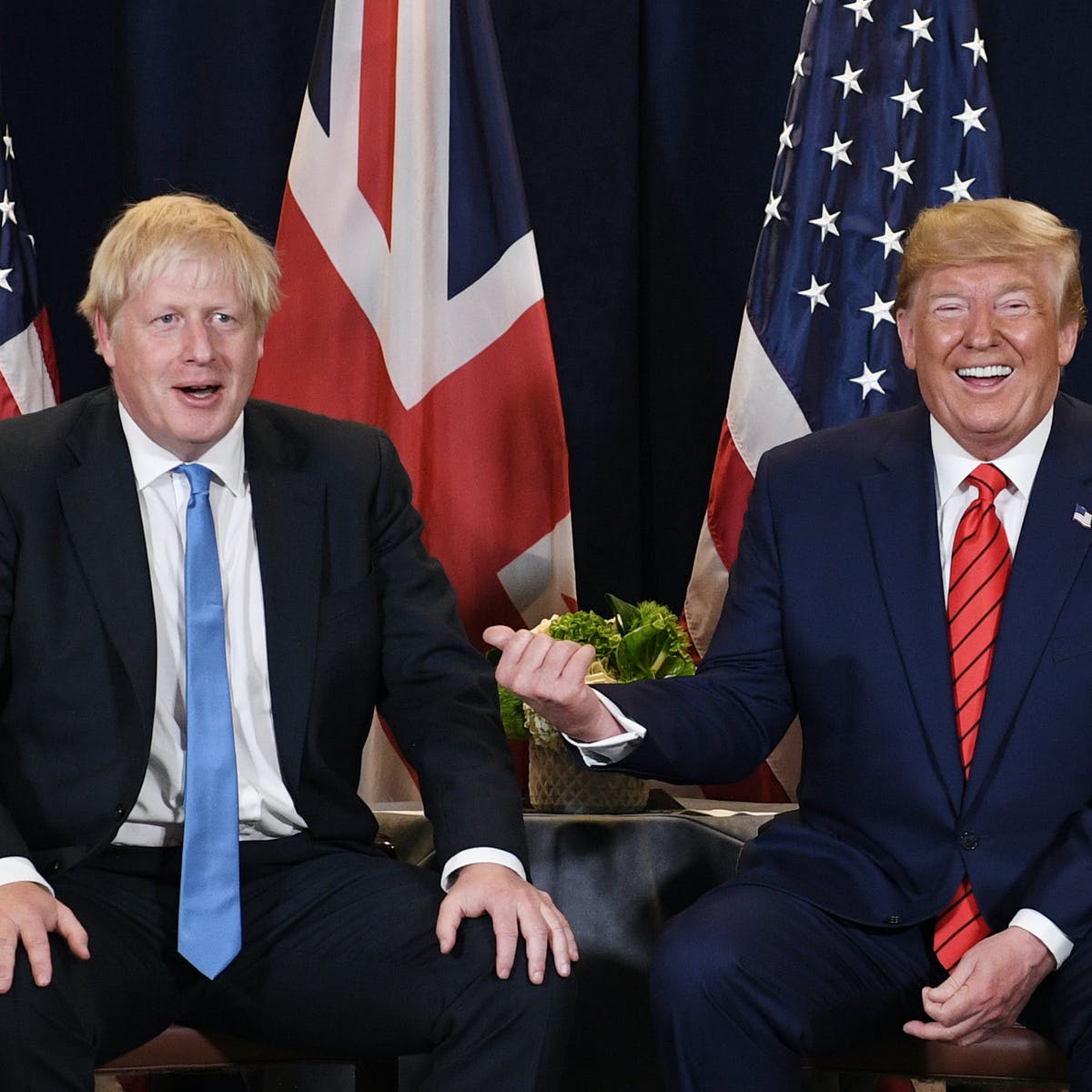OPINION: Nationalistic populism is dead. Now bury it.

Prime Minister Boris Johnson meets US President Donald Trump at the 74th Session of the UN General Assembly. Stefan Rousseau/PA Archive/PA Images
On November 3rd, polling booths across the US will close and the fate of the next four years will be decided. Social issues, such as climate change and racial injustice, will either be ignored or embraced and only the voter can decide which path is taken. But if the 2019 election across the pond is any indication, the wrong path could be disastrous, not only for the US, but for the rest of the world as well.
These last few months have been unlike anything any of us could have imagined. Hundreds of thousands of families have seen loved ones pass away before their time; countless lower income workers have lost their jobs; and a generation of school children has missed out on vital education. But some countries have been hit harder by the pandemic than others.
Of course, there are many factors contributing to how a country might be affected by a pandemic; population size and density being key elements in spread, though there is something in common with four of the top five countries when it comes to death tolls. Populism. The USA, Brazil, India and the UK are all run by men who claimed to know what’s best for the people and promised nationalistic reform. They pledged to change their countries in order to restore tradition and take back control of issues like border control. However, this type of politics works only when the enemy is fictitious.
Take the UK’s new stance on immigration, for example. Migrants arriving on boats are reported to be here to invade and radicalise the UK; but this is untrue. Although that doesn’t matter, because a war that you’ve created is an easy war to win. However, what happens when these pantomime politicians are faced with issues out of their control? Their facades drop. They crumble.
As the US heads into an election, the UK is walking into an avoidable second lockdown. With little in place to stop the virus, the UK government has largely failed to reduce the spread and, as a result, thousands of people will lose their lives over Christmas. Millions of pounds have been reportedly wasted in procuring faulty PPE and on a tracing system that simply doesn’t work. The response has been clueless.
But sadly, the US’ response to the pandemic has largely been the same. Like Boris Johnson, Donald Trump downplayed the virus at a time when procedures could have been put in place to curb the spread straight away. Both have disregarded what the World Health Organisation have advised and now, a winter of uncertainty is faced by both countries.
However, Johnson and Trump aren’t alone. Brazil’s Jair Bolsonaro largely followed the same handbook resulting in a catastrophic spread across the country. If nothing else, COVID-19 has proven that this way of governing a country doesn’t work.
Trump and Johnson are both great examples of men who want to prove they know best for their country, even if it means ignoring the science throughout a pandemic. Both men have falsely claimed that the virus hasn’t been as bad what the media have claimed and even gone so far as to say that their countries are world-beating when it comes to testing and tracing.
Whilst some might argue that this is down to their personality, rather than leadership traits, it’s hard to ignore that the likes of Bolsonaro and Modi both share similar characteristics. It’s a way for them to win votes, act like a lovable idiot and people will follow you.
Even when it comes to left-wing populism, these traits can be seen. For example, Jeremy Corbyn, the leader of the UK’s Labour Party from 2015 to 2020, showed similar signs. An usual character who has a personality, whilst being somewhat egotistical.
The term populist can be traced back to the Roman Empire and described a leader who was The Man of the People. Whilst the Oxford Dictionary defines populism as a political ideology aimed at the ordinary people, who’s needs are typically ignored by elite groups, current right-wing populist leaders are shaping up to be the elites they swore to work against.
To understand the future of right-wing populism, the way in which these people gained power to begin with must be understood.
In 2016, during the Brexit campaign, member of the UK cabinet Michael Gove stated, “people in this country have had enough of experts”. Whilst he was only talking about the UK, this sentence could be a great explanation for the tidal wave of right-wing populists taking charge across the world in the last five years. Trump took the White House in 2016, two years later Bolsonaro broke a two-decade left wing government and gained control of Brazil, Johnson then won a landslide victory just a year later. There seemed to be a point around the Brexit vote and 2016 US election, where people read what was happening the in the world and simply wanted change. Votes were cast as a protest.
These populist politicians were voted into power but have proven they care no more about the ordinary person than their oppositions. Trump reportedly paying very little tax; Boris Johnson forgiving Dominic Cummings for breaking lockdown rules; these people are out for themselves. Rather than looking up to these pantomime characters we currently have in power, we need strong leaders now more than ever and tomorrow, we could see that first domino fall in eradicating right-wing populism in our world.
For too long, the divide between left and right has been growing all over the world. Left-wing socialism was defeated in December, but at the cost of right-wing populism; the pendulum, despite swinging violently, will one day settle in the middle again. Tomorrow could be the first step towards this.
